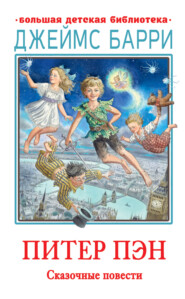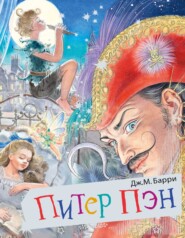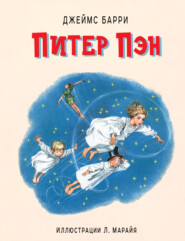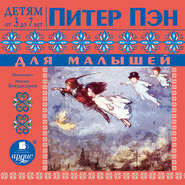По всем вопросам обращайтесь на: info@litportal.ru
(©) 2003-2025.
✖
The Little Minister
Настройки чтения
Размер шрифта
Высота строк
Поля
“He isn’t married?” asked Babbie, the picture of incredulity.
Nanny gathered from the minister’s face that he deputed to her the task of enlightening this ignorant girl, so she replied with emphasis, “Na, they hinna got him yet, and I’m cheated if it doesna tak them all their time.”
Thus do the best of women sell their sex for nothing.
“I did wonder,” said the Egyptian, gravely, “at any mere woman’s daring to marry such a minister.”
“Ay,” replied Nanny, spiritedly, “but there’s dauring limmers wherever there’s a single man.”
“So I have often suspected,” said Babbie, duly shocked. “But, Nanny, I was told the minister had a wife, by one who said he saw her.”
“He lied, then,” answered Nanny turning to Gavin for further instructions.
“But, see, the minister does not deny the horrid charge himself.”
“No, and for the reason he didna deny the cloak: because it’s no worth his while. I’ll tell you wha your friend had seen. It would be somebody that would like to be Mrs. Dishart. There’s a hantle o’ that kind. Ay, lassie, but wishing winna land a woman in a manse.”
“It was one of the soldiers,” Babbie said, “who told me about her. He said Mr. Dishart introduced her to him.”
“Sojers!” cried Nanny. “I could never thole the name o’ them. Sanders in his young days hankered after joining them, and so he would, if it hadna been for the fechting. Ay, and now they’ve ta’en him awa to the gaol, and sworn lies about him. Dinna put any faith in sojers, lassie.”
“I was told,” Babbie went on, “that the minister’s wife was rather like me.”
“Heaven forbid!” ejaculated Nanny, so fervently that all three suddenly sat back from the table.
“I’m no meaning,” Nanny continued hurriedly, fearing to offend her benefactress, “but what you’re the bonniest tid I ever saw out o’ an almanack. But you would ken Mr. Dishart’s contempt for bonny faces if you had heard his sermon against them. I didna hear it mysel’, for I’m no Auld Licht, but it did the work o’ the town for an aucht days.”
If Nanny had not taken her eyes off Gavin for the moment she would have known that he was now anxious to change the topic. Babbie saw it, and became suspicious.
“When did he preach against the wiles of women, Nanny?”
“It was long ago,” said Gavin, hastily.
“No so very lang syne,” corrected Nanny. “It was the Sabbath after the sojers was in Thrums; the day you changed your text so hurriedly. Some thocht you wasna weel, but Lang Tammas – ”
“Thomas Whamond is too officious,” Gavin said with dignity. “I forbid you, Nanny, to repeat his story.”
“But what made you change your text?” asked Babbie.
“You see he winna tell,” Nanny said, wistfully. “Ay, I dinna deny but what I would like richt to ken. But the session’s as puzzled as yoursel’, Babbie.”
“Perhaps more puzzled,” answered the Egyptian, with a smile that challenged Gavin’s frowns to combat and overthrow them. “What surprises me, Mr. Dishart, is that such a great man can stoop to see whether women are pretty or not. It was very good of you to remember me to-day. I suppose you recognized me by my frock?”
“By your face,” he replied, boldly; “by your eyes.”
“Nanny,” exclaimed the Egyptian, “did you hear what the minister said?”
“Woe is me,” answered Nanny, “I missed it.”
“He says he would know me anywhere by my eyes.”
“So would I mysel’,” said Nanny.
“Then what colour are they, Mr. Dishart?” demanded Babbie. “Don’t speak, Nanny, for I want to expose him.”
She closed her eyes tightly. Gavin was in a quandary. I suppose he had looked at her eyes too long to know much about them.
“Blue,” he guessed at last.
“Na, they’re black,” said Nanny, who had doubtless known this for an hour. I am always marvelling over the cleverness of women, as every one must see who reads this story.
“No but what they micht be blue in some lichts,” Nanny added, out of respect to the minister.
“Oh, don’t defend him, Nanny,” said Babbie, looking reproachfully at Gavin. “I don’t see that any minister has a right to denounce women when he is so ignorant of his subject. I will say it, Nanny, and you need not kick me beneath the table.”
Was not all this intoxicating to the little minister, who had never till now met a girl on equal terms? At twenty-one a man is a musical instrument given to the other sex, but it is not as instruments learned at school, for when She sits down to it she cannot tell what tune she is about to play. That is because she has no notion of what the instrument is capable. Babbie’s kind-heartedness, her gaiety, her coquetry, her moments of sadness, had been a witch’s fingers, and Gavin was still trembling under their touch. Even in being taken to task by her there was a charm, for every pout of her mouth, every shake of her head, said, “You like me, and therefore you have given me the right to tease you.” Men sign these agreements without reading them. But, indeed, man is a stupid animal at the best, and thinks all his life that he did not propose until he blurted out, “I love you.”
It was later than it should have been when the minister left the mud house, and even then he only put on his hat because Babbie said that she must go.
“But not your way,” she added. “I go into the wood and vanish. You know, Nanny, I live up a tree.”
“Dinna say that,” said Nanny, anxiously, “or I’ll be fleid about the siller.”
“Don’t fear about it. Mr. Dishart will get some of it to-morrow at the Kaims. I would bring it here, but I cannot come so far to-morrow.”
“Then I’ll hae peace to the end o’ my days,” said the old woman, “and, Babbie, I wish the same to you wi’ all my heart.”
“Ah,” Babbie replied, mournfully, “I have read my fortune, Nanny, and there is not much happiness in it.”
“I hope that is not true,” Gavin said, simply.
They were standing at the door, and she was looking toward the hill, perhaps without seeing it. All at once it came to Gavin that this fragile girl might have a history far sadder and more turbulent than his.
“Do you really care?” she asked, without looking at him.
“Yes,” he said stoutly, “I care.”
“Because you do not know me,” she said.
“Because I do know you,” he answered.
Now she did look at him.
“I believe,” she said, making a discovery, “that you misunderstand me less than those who have known me longer.”
This was a perilous confidence, for it at once made Gavin say “Babbie.”
“Ah,” she answered, frankly, “I am glad to hear that. I thought you did not really like me, because you never called me by my name.”

















